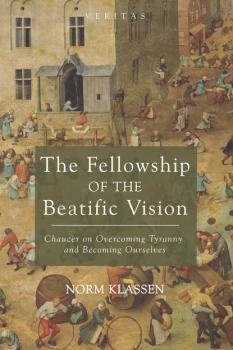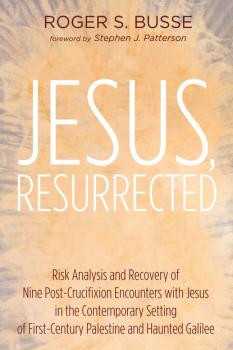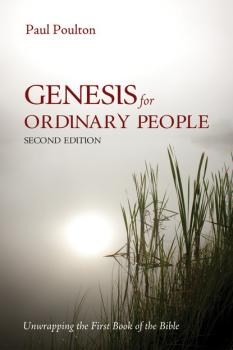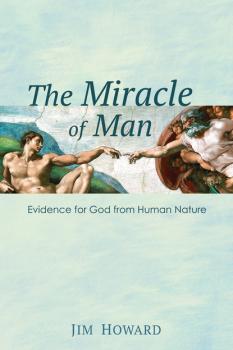MREADZ.COM - много разных книг на любой вкус
Скачивание или чтение онлайн электронных книг.The Fellowship of the Beatific Vision
In The Canterbury Tales, Geoffrey Chaucer asks a basic human question: How do we overcome tyranny? His answer goes to the heart of a revolutionary way of thinking about the very end of human existence and the nature of created being. His answer, declared performatively over the course of a symbolic pilgrimage, urges the view that humanity has an intrinsic need of grace in order to be itself. In portraying this outlook, Chaucer contributes to what has been called the «palaeo-Christian» understanding of creaturely freedom. Paradoxically, genuine freedom grows out of the dependency of all things upon God. In imaginatively inhabiting this view of reality, Chaucer aligns himself with that other great poet-theologian of the Middle Ages, Dante. Both are true Christian humanists. They recognize in art a fragile opportunity: not to reduce reality to a set of dogmatic propositions but to participate in an ever-deepening mystery. Chaucer effectively calls all would-be members of the pilgrim fellowship that is the church to behave as artists, interpretively responding to God in the finitude of their existence together.
Land, Liberation, and Death Squads
Jose «Chencho» Alas was one of the first priests in El Salvador to found Christian Base Communities and sensitize campesinos along the lines of Medellin. This work was done in Suchitoto parish, which was subsequently hit hard during the armed conflict. Unfortunately, little has been written so far about this very important period in El Salvador. In his book, Chencho writes about historical events of great importance in which he took a direct part, such as the first Agrarian Reform Congress; the founding of the Monsignor Luis Chavez y Gonzalez School of Agriculture; protests against construction of the Cerron Grande Dam; the creation of the first coalition of grassroots organizations, the Unified Popular Action Front (FAPU); and the first occupation of the Metropolitan Cathedral. He recounts the conflicts he had with local and national authorities due to his defense of campesinos' rights, for which he was kidnapped and tortured. He also relates little-known details about the martyrs Father Rutilio Grande, Father Alfonso Navarro, and the beloved Monsignor Romero. He tells these stories with the characteristic humor of the Salvadoran people and with details only an eyewitness can remember. This makes for stimulating and enjoyable reading, besides helping readers better understand El Salvador's history, delving into the events of the 1970s, before the unfortunate armed conflict.
Jesus, Resurrected
How would ancients, particularly Jesus' enemies, have understood what he was doing in his exorcisms–the mechanisms, the techniques, and the outcomes? And why would anyone have risked associating with a man thought possessed by Beelzebul and engaged in illegal, shadowy, even disreputable activity? The result is an engaging and enlightening read of the Jesus tradition in its contemporary setting that is sure to surprise, and perhaps even delight the reader whose mind is open to new ideas and able to handle the subtleties of cross cultural exploration. Why was Jesus labeled a dark magician, an «evildoer?» Why did he use illegal practices to expel demons? Why was he crucified and not stoned, stabbed, or beheaded like other Roman antagonists, such as John the Baptist? Why was his body entombed in stone and not thrown into the city dump? Most important, why would anyone accept the perilous risk of admitting to have seen this condemned dark magician after crucifixion, and then proclaim him «master?» Roger Busse, a forty-year veteran of risk analysis and graduate of Harvard Divinity School, carefully analyzes these questions and the post-crucifixion encounters with Jesus in their contemporary setting, recovering nine highly reliable encounters.
Genesis for Ordinary People, Second Edition
The book of Genesis is considered by some people to be inspired, truthful, and sacred. Others think of it as a fairy story and wonder why people still believe such an ancient book. Genesis for Ordinary People doesn't shy away from the questions that go through people's minds as they read the first book in the Bible. Are there reasons it is trustworthy? In addressing these questions, Paul Poulton follows the intriguing thread that runs through the entire book of Genesis. He takes a good look at the story's wonderful (and flawed) people and beings, inviting readers to gaze into the garden of Eden to witness the reality of what actually happened there. He follows the storyline of Genesis but often looks back, adding a fresh perspective to Adam and Eve's enthralling lives. A fascinating picture emerges as the layers of Genesis accumulate.
The Miracle of Man
What Is a Man? Biologically, we are animals–homo sapiens. But men are different, born with consciousness, reason, free will, notions of morality, and other characteristics of what we call «human nature.» Why are we different? Were we created by God or are we just accidents of nature? Are you a child of the King or just a child of King Kong? This is a book of apologetics for laypeople. It looks at arguments for the existence of God and especially at those arguments that can be drawn from human nature. It argues in plain language, with illustrations and humor, that we cannot explain human nature without God, that men are miracles.
The Last King of Israel
As death draws near, life will be lived differently. The Last King of Israel explores how the king of kings chose to live his final ten days culminating in the resurrection. Lessons like spending time with loved ones, dealing with difficult people, handling criticism, resting despite enormous stress, and handling affliction are some of the areas addressed as Jesus faces imminent death. Easter is one of the world's most revered holiday seasons; this book will enhance understanding of this truly holy week. Including the two days before Palm Sunday and continuing through the evening of his resurrection, The Last King of Israel takes the reader on Jesus's epic final ten-day journey as his mission on earth comes to an end. Seeing how he died will teach all of us how to live. Challenging both the heart and the mind, The Last King of Israel is a must-read for those who desire a deeper understanding of who Jesus is and the life he lived.
Handbook of Biblical Social Values, Third Edition
Values are culturally specific. This handbook explains select biblical social values in their Mediterranean cultural contexts. Some examples of values are altruism, freedom, family-centeredness, obedience, parenting, and power. Though the English words for the values described here would be familiar to readers (e.g., altruism) the meanings of such words differ between cultures. In the Mediterranean world, for instance, altruism is a duty incumbent upon anyone who has surplus. It is interpersonal and group specific. In the West, especially in the United States, altruism is impersonal and universally oriented generosity that operates in a highly organized context. This handbook not only presents the Mediterranean meanings of these value words but also contrasts those meanings with Western ones.
Unlocking the Puzzle
A shorter, simpler first draft of the Gospel of Mark has been theorized by New Testament scholars for almost two hundred years. Using literary tools, David Oliver Smith strips away interpolation and redaction from the canonical Gospel to reveal that long-sought first draft–the Original Gospel of Mark. Original Mark, shorter than the canonical version and with several large blocks of text replaced in their original locations, reveals a coherent structure and a different picture of who Jesus is. But it is anything other than simple. The Original Gospel also presents puzzles for the curious reader of Mark to solve, and Smith has found the keys to their solution. Analysis of the text that was interpolated into Mark reveals who that redactor might have been. Evidence is presented that it was the author of the Gospel of Luke who redacted the first-written Gospel, jumbled its structure, and changed its Christology. Follow the analysis of literary structures created by the genius who wrote Mark's Gospel and discover the astounding design of the Original Gospel of Mark.
The God Who Prays
The God Who Prays is a spiritual reading of Jesus' farewell prayers. Jesus began his upper room discipleship sermon on his knees, washing the disciples' feet, and he ended it with his eyes raised to heaven, consecrating himself and his disciples to the will of the Father. For Jesus the line between communion with his Father and conversation with his disciples is very thin. Dialogue and devotion go hand in hand. His Glory prayer and his Gethsemane prayer, along with his prayers from the cross, transform the disciples from pre-passion inquisitiveness and doubt to post-passion devotion and discipleship. Through answered prayer Jesus shifts the disciples from training mode to mission. His example inspires us to ask how thin the line is between praying and living. Prayer's promised efficaciousness, «whatever you ask,» is locked in to our relationship with the triune God. The Father is the source of every good and perfect gift. The Son, in whose name we pray, gives the purpose and the passion for «whatever» we ask. And our Advocate, the Holy Spirit, guides us into all truth. On the eve of the crucifixion Jesus teaches us how to pray.
Holy Fire Fell
Why do we worship as we do? What are the forgotten practices once central to many early Nazarene congregations? Because historical events and other factors have shaped and molded the various worship patterns found in local congregations, the way in which contemporary Nazarenes worship is no accident. Like other descendants of the American holiness movement, Nazarene worship is influenced by events predating our denominational forebears. This text explores the history behind current worship trends for a crucial reason: the very act of worship shapes and forms worshipers. Beliefs and attitudes are forged not merely by what is heard from the pulpit, but also by what is done bodily in the pew. Ellis examines the liturgical concerns and practice of John Wesley as well as those of early Nazarene pioneers in an attempt to address these issues. In so doing, the book provides a historical resource for denominational leaders, pastors, and congregations. At the same time, it aims to help congregations both to appreciate our rich ecclesial history and to critically evaluate current worship practices in order that they may truly be transformational.









